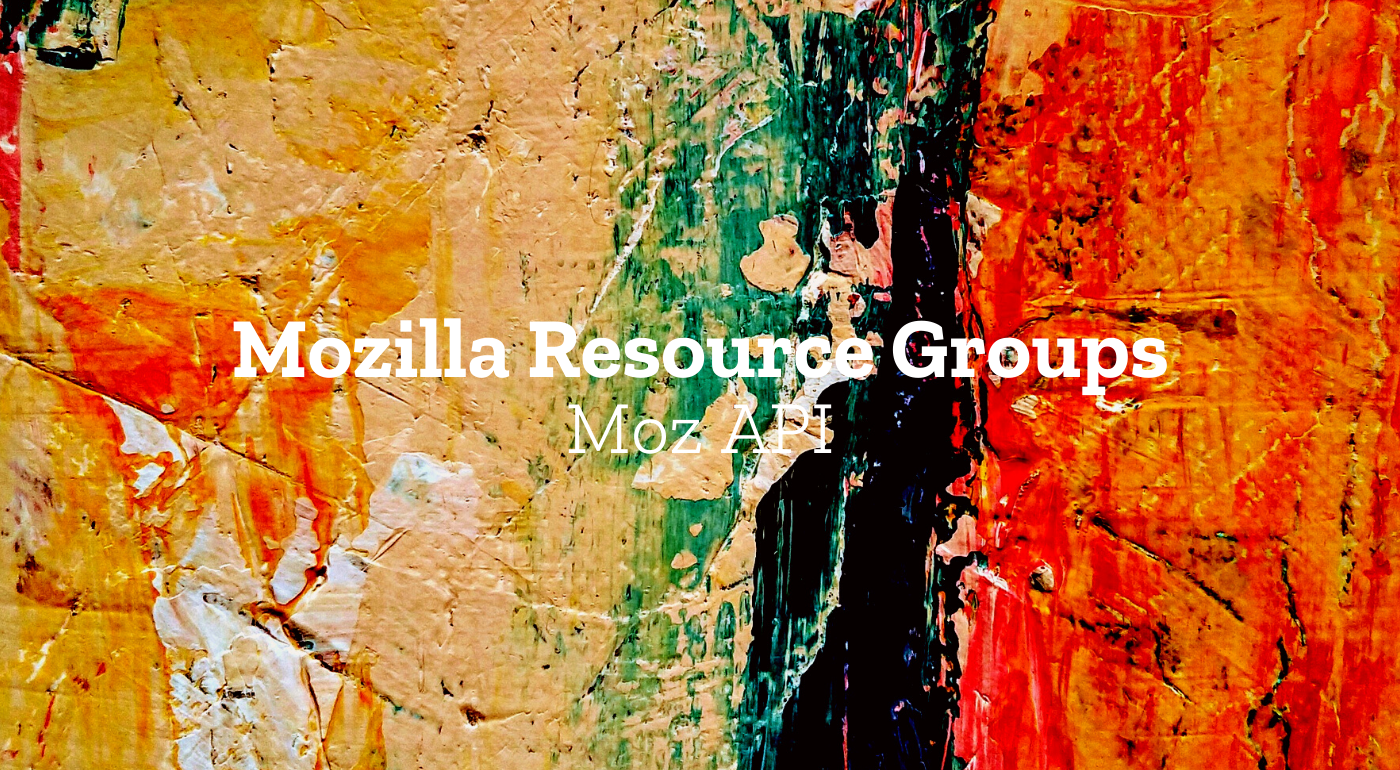It’s our mission at Mozilla to build an internet that includes everyone, regardless of demographics and opportunities, and we’re building our team the same way. We believe our growing list of Mozilla Resource Groups (MRGs) — Afrozillians, Disability@Mozilla, Latin Pride, Mozilla API, Pridezilla, and Women of Mozilla — are critical to our success.
We also believe that the best way to understand these groups is through the people in them. Below, Senior Data Science Manager Julie Hollek explains why Mozilla API is important to her, what the company does to support its goals, and what she hopes for D&I at Mozilla going forward.
Why did you join Mozilla API?
When I first came to Mozilla, I felt my race in ways I hadn’t in previous jobs. Women in tech are almost always underrepresented; I was more used to that. But about 17 percent of Mozilla employees are Asian or Asian American, which is much lower than your average tech company. I wanted to be part of changing that — helping make space for people. I’m a Korean adoptee, so I grew up sort of standing on the edge of two cultures. I know what it’s like to be seen as an outsider.
 I actually got involved in D&I before the MRG even existed — through the Finance and Business Ops (FBO) organization, which the Data Science team is part of. Our CFO at the time, Roxi Wen, is Asian American, and she was very passionate about making sure that everyone in the org felt welcome and that our experiences were acknowledged and represented. She started a council within FBO that was thinking about some of these same issues.
I actually got involved in D&I before the MRG even existed — through the Finance and Business Ops (FBO) organization, which the Data Science team is part of. Our CFO at the time, Roxi Wen, is Asian American, and she was very passionate about making sure that everyone in the org felt welcome and that our experiences were acknowledged and represented. She started a council within FBO that was thinking about some of these same issues.
Then around the beginning of 2021, when the spike in anti-API hate crimes started making more headlines, I think people really saw the need for a Mozilla-wide community. When you’re trying to do your job, and meanwhile people who look like you are getting attacked — it’s important to have a dedicated space to talk about things like that. So Leslie Gray, our head of D&I, started working with a few of us on what a group might look like. We took a few months to organize and had a big kickoff in May, which in the U.S. is Asian American and Pacific Islander Heritage Month.
Tell us about some of the group’s activities so far.
Outside of Heritage Month, most of the activity happens in our Slack channel. Those conversations are pretty wide-ranging. We have Photo Fridays, where we share travel memories and food and other life highlights. When Michelle Zauner’s memoir Crying in H Mart came out, we talked about that. We’ve also had a Slack bot that shared a new piece of art every day from the Asian Art Museum in San Francisco, which was cool.
And then for Heritage Month, we organized several activities — there was a cooking class where people learned to make Chicken Adobo; we curated a playlist and shared music during All Hands; and we had a couple of conversations that were open to the rest of the team. One was a sort of gathering where we talked about anti-Asian violence. The other was a panel of API Mozillians from across the company and foundation — all the way up to the C-suite — sharing their experiences as Asian Americans. I think the discussions have been so powerful. There’s often a tension, especially in East Asian cultures with roots in Confucianism, between speaking up and keeping a sort of stiff upper lip. So it’s good to have a forum where we can say — and our allies can hear — the things we’re usually quiet about.
How has the company shown support for D&I, and Asian and Pacific Islander Mozillians in particular?
One thing I’ve noticed is that our leaders are very open about our diversity metrics — both where we are now, and where we want to be — and those metrics include API representation right alongside representation of Black, Latinx, and Indigenous Mozillians. We get D&I updates in every company meeting, and we also share our progress publicly. I think that accountability is important.
There are little things, too. I remember not long after I joined, at our All Hands in Berlin, they were handing out little red envelopes with a dollar and a Mandarin orange to celebrate the Lunar New Year. It felt like such a warm welcome, to have something like that acknowledged.
We’ve also done a lot of D&I work directly in the Finance and Business Ops organization, especially around hiring. In our behavioral interview, we have a specific question about how the candidate has contributed to fostering inclusion in their workplaces. That’s what you really want — not just culture fit, but culture add. We’re looking for people who will help push us in the direction we want to go.
And on my team, we’ve added a D&I element to our development framework — so if you want to grow your career here, engagement with D&I is part of how you’re assessed. The framework is based on Mozilla’s community participation guidelines, and it covers things like actively seeking opinions from team members with varied experiences, all the way up to contributing to the design, implementation, and measurement of Mozilla’s D&I programs. I’m a big fan of building in processes like that. Yes, you should want to do it anyway, just because it’s right. But it helps when something has teeth. If nothing else, it’s an entry point for talking more actively about D&I; I’ve had members of my team say, “Hey, I don’t think I’m there yet. What can I do to improve?” There’s been a lot of positive feedback so far, and we’ve actually scaled the process to the rest of the FBO org at this point. I’d love to see it keep growing.
What would you like to see going forward — for the MRG, and for D&I at Mozilla?
For the MRG itself, I’d like to host more discussions like the ones we’ve had so far. I think we also have room to grow in terms of engaging with the API community outside of Mozilla. My team, for example, hosted Mozilla’s exhibitor booth at the Student Data Science Symposium held by the Atlanta University Center, a consortium of historically Black colleges. I think those relationships are so important — and it takes time, effort, and consistency to build them right.
At the company level, I want to see us keep pushing toward the demography of our users. As we think about the products we’re building, we need more people who can speak to a range of experiences. When it comes to our data practices, for instance, how do we build out something like Firefox Suggest to serve all users, versus one specific subset? Some of the groups most likely to experience things like algorithmic violence often have little to no voice in tech. To change that, we have to hire.
And I’d also love to see us think beyond hiring. Diversity is one thing; equity, inclusion, and belonging can be trickier. You have to figure out what they mean to you before you can set clear goals. I’m hopeful, though. We aren’t where we want to be, but even in less than two years since I joined, I’ve seen a lot of changes that are directionally correct. And I think Mozilla is very good at doing hard things, and doing them well.
